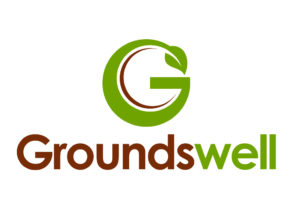Groundswell Benchmarking Group
Regenerative agriculture can achieve similar financial results to traditional arable systems and benchmarking your business can help to manage the change.
Background
Farming is embarking on a period of change that most of the current generation of farmers have not experienced. Moving from the comfort of area payments which on average make up around 84% of income on arable farms in the Land Family Business (LFB) annual benchmark, to having to apply for specific funding for providing natural capital.
This will inevitably put farming business in financial strain as there will be a funding gap over the forthcoming few years.
Farming has become very capital intensive. The economic production value of arable land is in the region of £4,000 per acre and the additional £4,000 to £6,000 has no bearing on the production capacity. Added to this is the increase in the capital cost of machinery over the past few years to over £300 per acre.
“Change is inevitable – but managing the change is where the difficulty comes. ”.
Many farmers have quite correctly attempted to expand as a means of dealing with these pressures however expanding acres has normally meant tendering for contract farming agreements and on average a loss of between £40 to £60 per acre is made on the additional land.
All of this results in arable farming, producing commodity crops, not being a viable business. The margin from arable farming before BPS and income from other enterprises has been (£2) per acre over the past 2 years in the LFB benchmarking survey.
Change is inevitable – but managing the change is where the difficulty comes. One of the best tools to monitor the change and provide achievable targets is to benchmark against farming businesses that have already made these changes.
Groundswell Benchmarking Group
LFB have now been benchmarking a group of regenerative agriculture farming businesses for the 17 to 20 harvests – to identify if regenerative agricultural production systems can be financially viable.
Some of the key findings for the regenerative systems are:
- The average output per acre is 25% lower
- Variable costs are 24% lower
- Gross margin 28% lower
- Labour and machinery costs are 30% lower
This results in an average margin very similar for both systems of production. However the range of results within the Group is wide with the top performers achieving results well above conventional top 25% group.
In addition to margins there are savings in working capital of around £148 per acre which can have a large impact on a farming business.
Machinery Capital per Tonne
The main driver of lack of profitability in arable farms are the machinery costs and in particular depreciation which represents the capital per acre.
We have therefore developed a key indicator of machinery capital per tonne:
- Groundswell group average £74
- LFB conventional system £91
The difference has been around £20 to £30 per tonne over the past 4 harvests.
So, what does all this mean?
Firstly current traditional ‘yield is king’ philosophy does not work.
Secondly expanding acres is not feasible by using traditional contract farming structures.
Thirdly benchmarking data from 4 harvests proves that there is a different approach that is economically viable.
Gary Markham
Watch Gary’s talk on the 2020 Benchmarking results on Groundswell YouTube here.
Gary will be running through the benchmarking figures at the Groundswell Show on 23rd and 24th June. Get your tickets here.

